
The world of *Tron* is unique – a digital landscape imagined during a time before computers were commonplace. Within it, programs behave like people, traveling on motorcycles and boats, and even seeming to think and feel. The original *Tron* film is a surprisingly early take on virtual reality, relying more on practical optical effects than computer-generated imagery. Today, many movies feature characters moving through entirely digital environments, essentially making them *Tronlike, even if they don’t appear that way on the surface.
It’s remarkable how relevant the original *Tron* has become with time. Beneath its somewhat dated, fantastical story of a programmer trapped inside a video game, the film really explores the idea of artificial intelligence becoming so powerful that it poses a danger to us. That concept felt far-fetched back in the early 1980s, but today it feels surprisingly accurate.
Okay, so I just saw *Tron: Ares*, and honestly, it doesn’t really *say* much of anything, about AI or anything else, really. It’s a pretty silly movie, which is what Hollywood seems to do with stories about smart people these days! It feels like the filmmakers just thought, ‘Hey, it was cool in the original *Tron* movies to send people *into* the digital world, so what if the programs from inside could come *out* into our world?’ That seems to be the whole idea driving the movie, and… that’s about it.
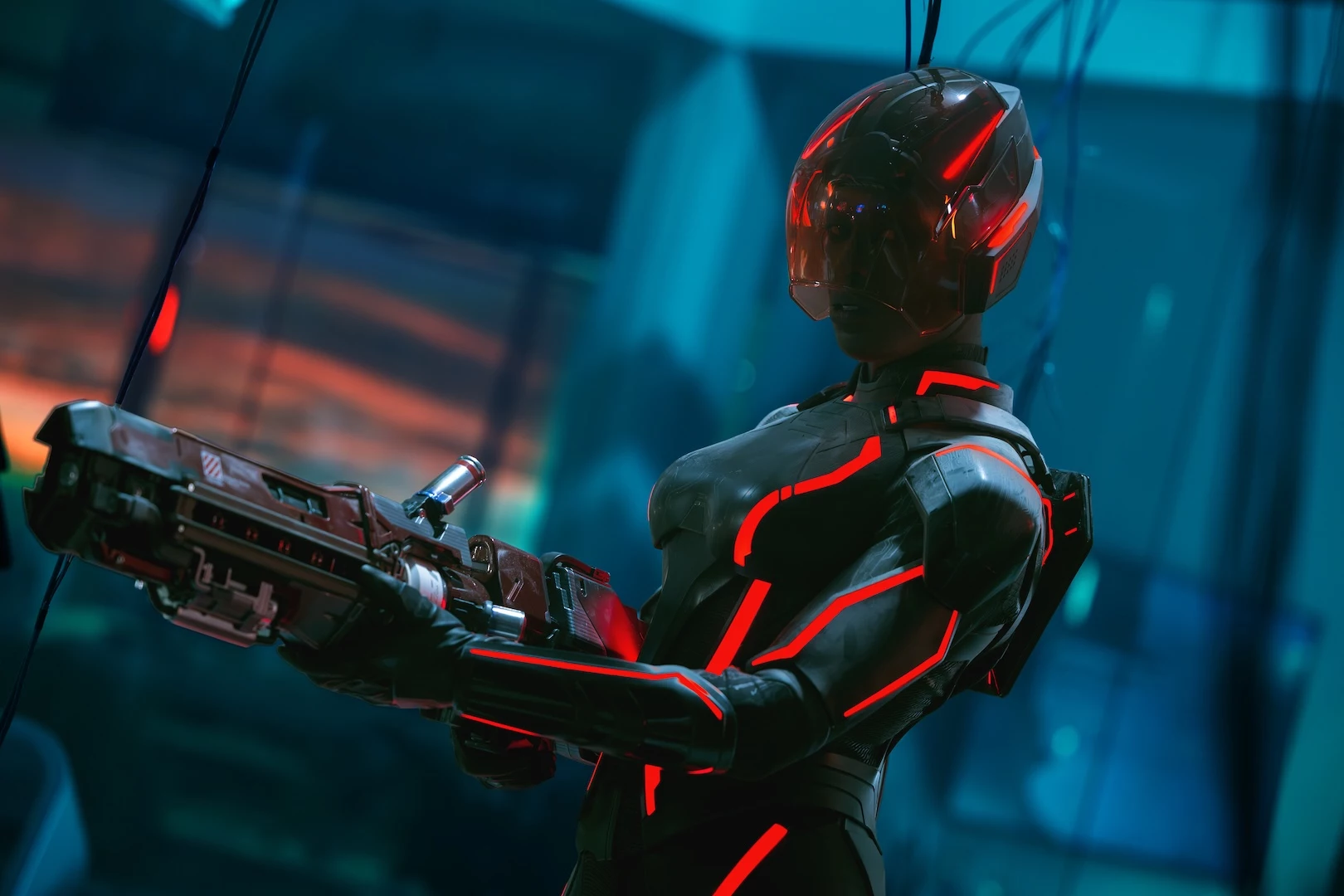
Honestly, it *is* a visually stunning movie, especially when Nine Inch Nails’ electronic rock score kicks in – it really gets your heart racing! Like the other *Tron* films, *Ares* is packed with incredible visuals – the sets, vehicles, and costumes are all top-notch. And the music? Absolutely fantastic. Just don’t overthink the plot, though. If I started listing everything in *Tron: Ares* that doesn’t quite make sense, the list would probably be longer than the movie itself!
The movie begins with a computer-generated introduction that catches us up on the world fifteen years after *Tron: Legacy*. It quickly establishes that Sam Flynn, the hero of that film, has sold his company, ENCOM, to two sisters for unspecified personal reasons. The new CEO of ENCOM, Eve Kim, is now locked in a fierce rivalry with Julian Dillinger, the head of Dillinger Systems. Fans of the original *Tron* will recognize Julian as the grandson of the first movie’s villain, but this connection isn’t crucial to the story.
Julian, a tech entrepreneur, is trying to profit from a virtual world called the Grid by using devices similar to 3D printers. These devices use magical lasers to bring things from the computer into the real world. However, anything Julian brings over only lasts for 29 minutes before disappearing into digital dust. This limitation even applies to Ares (played by Jared Leto), a powerful program Julian created as a virtual and physical enforcer. Julian designed Ares to be an unbeatable fighter and, strangely, gave him the appearance of a rock star with long hair and a neatly groomed beard.
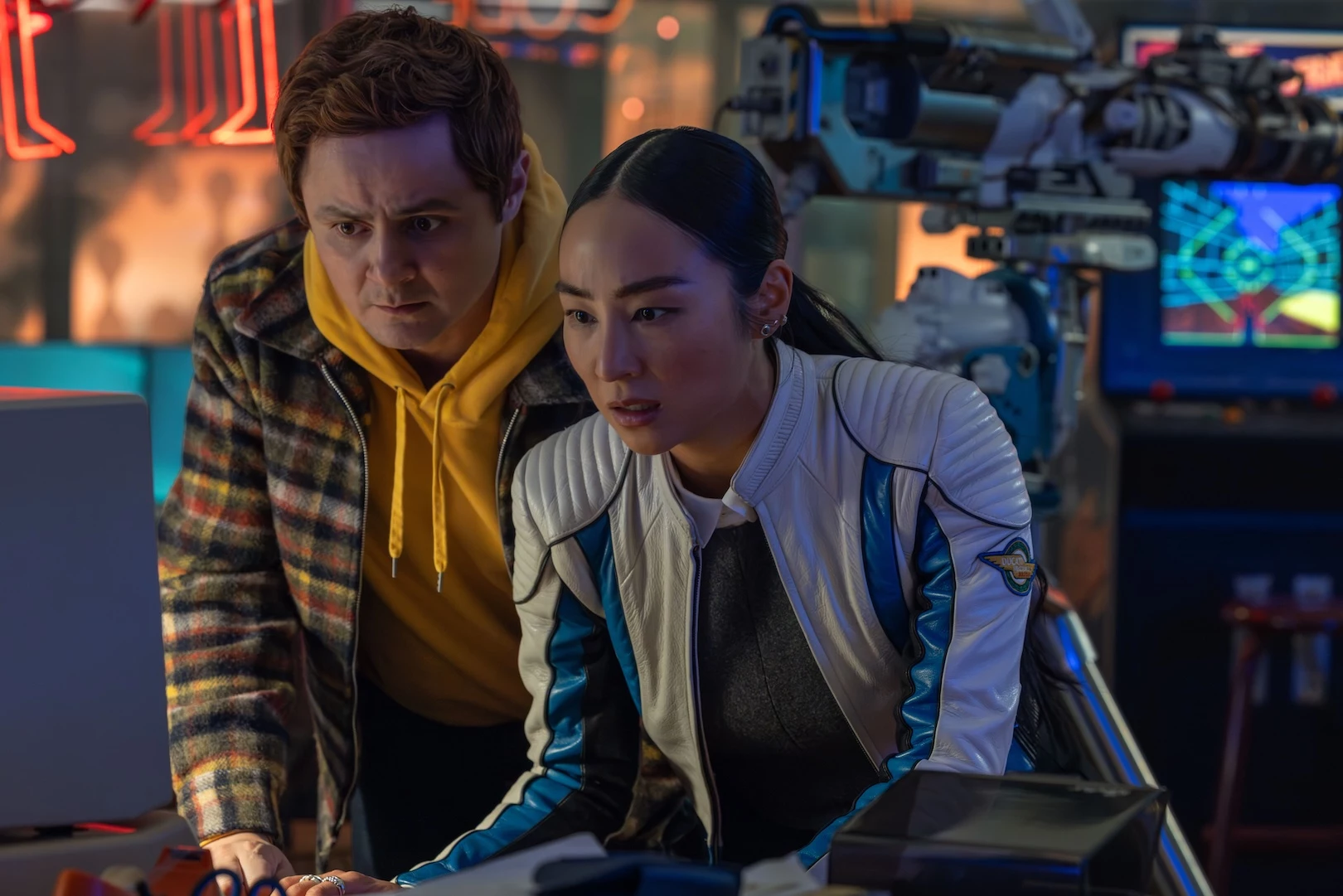
Eve and Julian both think that Kevin Flynn (played by Jeff Bridges), the original hero from *Tron* and former CEO of ENCOM, found a special program called the “Permanence Code.” This code would allow programs like Ares to exist in the real world indefinitely. This discovery kicks off a competition to find the code and control it, and it’s likely we’ll see Jeff Bridges make an appearance to talk about the intersection of biology and digital technology, as he did before.
Let’s be honest, the core idea behind this movie is completely ridiculous. But sometimes, a little silliness is exactly what you need! In a world that often feels too real, escaping into a bit of nonsense for a couple of hours is a great reason to go to the movies. *Tron: Ares* does just that. It fully leans into how unbelievable its concept is—after all, it’s a sequel to a movie about a man who entered a computer to play a life-or-death game of frisbee while wearing a glowing outfit—and uses that to deliver big action sequences and a truly spectacular experience.
While not as visually dramatic as *Tron: Legacy*, director Joachim Rønning’s *Ares* still refreshes the look of the *Tron* universe. It introduces exciting new elements like spears that leave trails of light, and vehicles—including a jet ski that cleverly transforms into a submarine.

Jared Leto is a fitting choice to play an artificial intelligence trying to figure out people – he’s wonderfully strange, and that quirkiness provides some funny moments, particularly in a scene with Bridges. (You’ll want to see their conversation about music!) However, Greta Lee, a very talented actress, feels a little underused here. Hopefully, being in a film like *Tron* will open doors for her to star in more projects like *Past Lives*, which would be great.
Gillian Anderson delivers the strongest performance as Julian’s controlling mother. She’s stepped back from running the family business, handing it over to her unpleasant son, but still closely monitors everything he does, clearly unimpressed and let down by his choices. Jodie Turner-Smith is also excellent as Athena, Ares’s key assistant. Her look – a bleached haircut and dark eye makeup – is powerfully intimidating, making her a much more convincing warrior than Leto, despite his character being designed as the ultimate, unbeatable program. (And his hair is fantastic – seriously, how does he get it so shiny?)
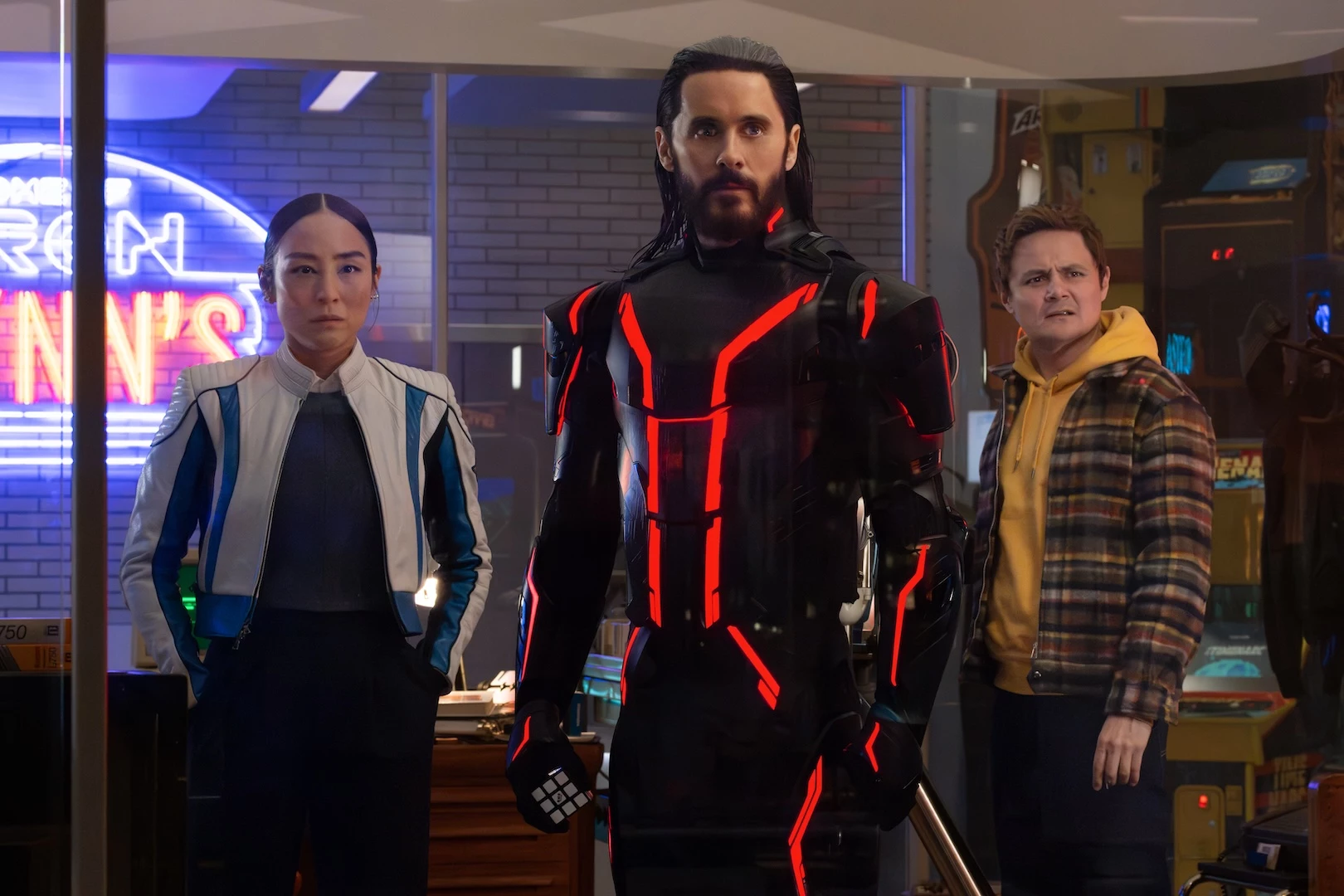
The *Tron* franchise will always be *Tron* – visually stunning and ahead of its time, but often sacrificing a strong story and memorable characters for impressive effects and music. *Tron: Ares* follows this pattern, and arguably enhances it with non-stop action, thrilling chases, and a powerful score by Nine Inch Nails. Thankfully, despite the film’s focus on artificial intelligence, it doesn’t *look* like it was created using AI art generators.
RATING: 6/10
Classic Movies That Got Bad Reviews From Critics
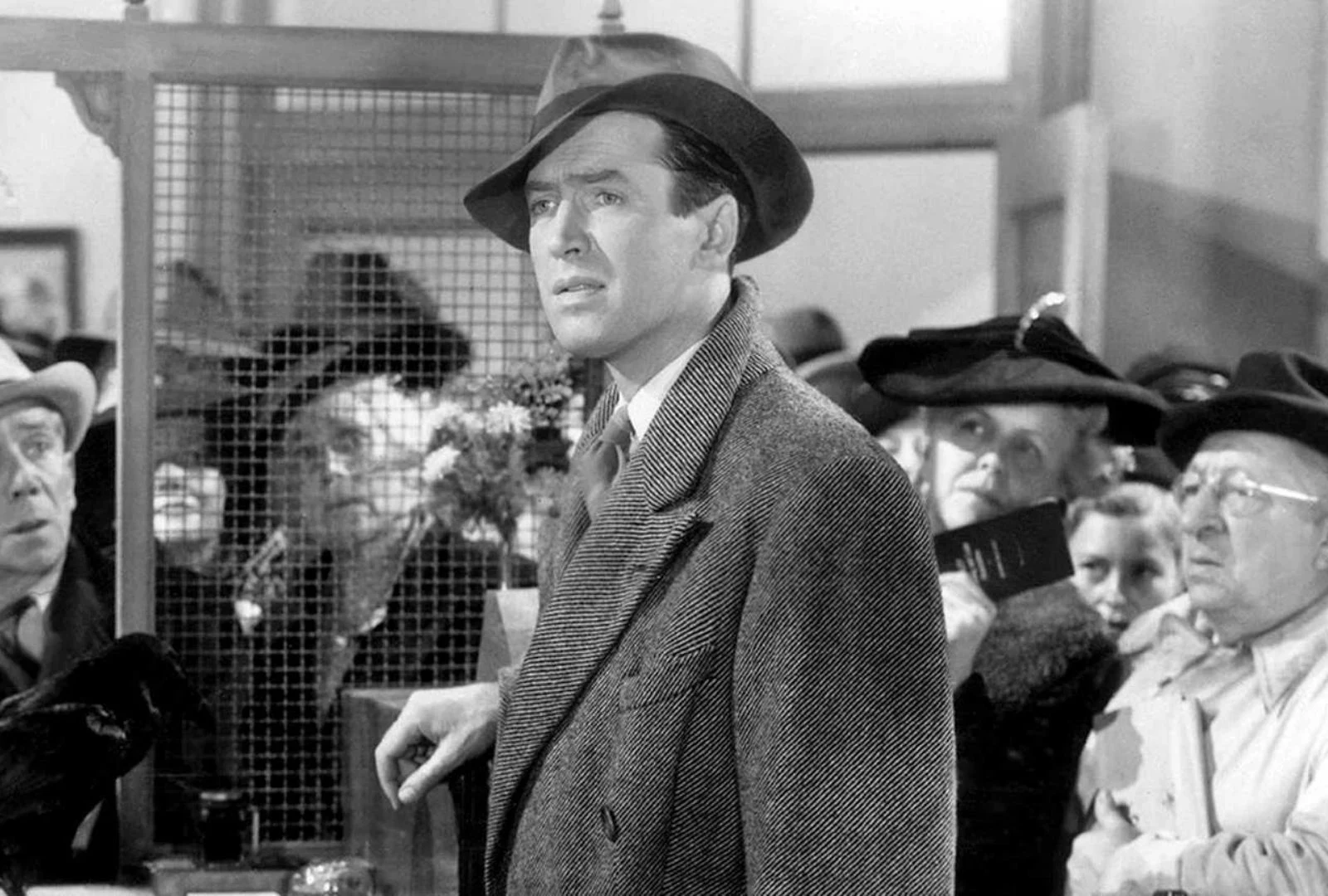
It’s a Wonderful Life (1946)
Despite now being considered the ultimate Christmas movie, *It’s a Wonderful Life* initially struggled. It wasn’t successful when it came out in theaters, and critics at the time weren’t impressed. In fact, a review in *The New York Times* criticized director Frank Capra for portraying characters and ideas that felt overly dramatic and unrealistic. A bit of a Scrooge-like reaction, really.

The Night of the Hunter (1955)
Charles Laughton was a highly respected and successful actor with a lengthy career in theater and film. However, he only directed one movie: *The Night of the Hunter*, a now-classic film noir about a serial killer attempting to steal a woman’s inheritance. Though it wasn’t successful when it was first released, *The Night of the Hunter* is now a favorite among film historians and fans of crime movies, and Laughton never directed another film.

Vertigo (1958)
Alfred Hitchcock’s *Vertigo* is a must-include on any list of his best films. It’s a deeply unsettling and psychological exploration of desire and loss. Today, many consider it not just Hitchcock’s greatest achievement, but one of the greatest films ever made – in 2012, it even surpassed *Citizen Kane* in the prestigious *Sight and Sound* poll, a position *Citizen Kane* had held since 1952. This is quite a change from its initial reception in 1958, when audiences and critics alike found it confusing and were troubled by its depressing story and ending. One review in *The Los Angeles Times* famously stated that watching *Vertigo* made the viewer feel just as dizzy as the characters.

Peeping Tom (1960)
Similar to the initial reaction to *Vertigo*, critics were shocked by the unsettling mix of sex and violence in Michael Powell’s 1960 thriller, *Peeping Tom*. One critic famously hated the film so much they suggested it should be thrown away like garbage. The movie was so poorly received in the U.K. that it essentially ended Powell’s career. Now, *Peeping Tom* is recognized as a classic, included in the Criterion Collection, and considered a groundbreaking and influential film about the darker aspects of watching and observing.

Bonnie and Clyde (1967)
Few movies have sparked as much controversy with initial reviews as *Bonnie and Clyde*. While many older critics strongly disliked its graphic violence, finding it shocking and in poor taste, the film quickly became popular with younger audiences. It also won over a new wave of critics, including Pauline Kael and Roger Ebert, who both praised it despite the negative mainstream response. The film is also famous for a particularly notable reversal: Joe Morgenstern of *Newsweek* originally called it a mindless action film, but after a second viewing, completely changed his mind and wrote a new review declaring it a modern classic.

Night of the Living Dead (1968)
While it might not seem shocking today, *Night of the Living Dead* featured incredibly graphic zombie violence – and a powerful message about racial tensions and fear of outsiders – that had never been seen in movies before. The film was a quick financial success, earning back its small budget many times over, but its importance wasn’t fully recognized until later. After director George A. Romero and others made even more shocking zombie films, people began to understand the film’s true impact on the horror genre.

2001: A Space Odyssey (1968)
Stanley Kubrick faced remarkably consistent criticism throughout his career. Critics often found his new films disappointing compared to his previous work, but frequently came to appreciate them later on. Several of his movies followed this pattern – and you’ll find two of them further down this list if you’re curious which ones.
Even his most celebrated film, *2001: A Space Odyssey*, wasn’t immediately praised. While Roger Ebert was an early fan, other prominent critics like Andrew Sarris and Pauline Kael were deeply unimpressed. Interestingly, these two critics, who often disagreed, were united in their dislike of *2001*. Sarris called it a “disaster,” and Kael labeled it “monumentally unimaginative.” (It’s understandable if someone doesn’t like *2001* – it’s still a divisive film – but to call it *unimaginative* seems a bit of a stretch.)

The Wild Bunch (1969)
Sam Peckinpah was known for challenging the limits of what was acceptable in Hollywood films, and this often caused controversy. Today, his 1969 Western, *The Wild Bunch*, is considered a classic—a groundbreaking reimagining of the traditional American frontier story. However, when it was first released, the film’s intense violence and questioning of American myths sparked significant criticism. In fact, at a press conference the day after the premiere, a reporter famously asked Peckinpah to justify making the film at all.

The Rocky Horror Picture Show (1975)
What is now considered a classic film actually started as a critical and audience failure. After initial negative reactions to *The Rocky Horror Picture Show*, its distributor experimented with midnight showings, inspired by the success of similarly unconventional films like *Pink Flamingos*. This proved to be a stroke of genius. The film quickly became popular at the Waverly Theater in New York City, and soon midnight screenings were selling out nationwide, cementing its place in film history.

The Warriors (1979)
It’s not surprising that some critics were confused by *The Warriors*. Its strange and imaginative depiction of New York City gangs feels like a film built for a dedicated, cult following. And that’s exactly what happened – despite the initial negative reviews, Walter Hill’s movie has become a beloved classic from the 1970s.
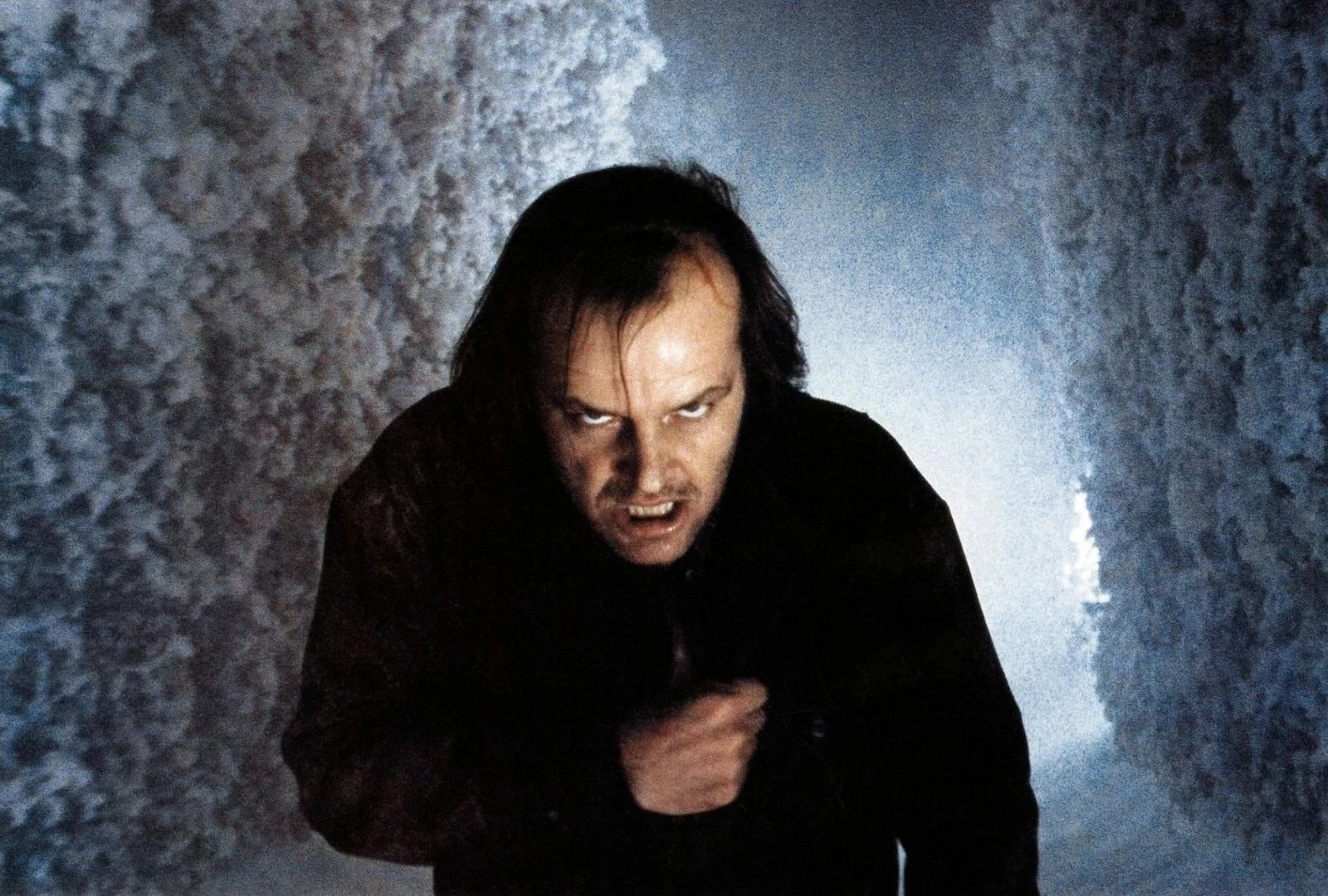
The Shining (1980)
When Stanley Kubrick’s film version of *The Shining* came out, it wasn’t well-received by critics, and surprisingly, the author Stephen King himself strongly disliked it. He disapproved of the casting choices and was unhappy with the changes Kubrick made to his novel. In fact, the movie even received several Razzie nominations, including one for Worst Director – it’s amazing to think Stephen King might have even voted for the Razzies!

Caddyshack (1981)
Comedies often don’t receive much praise from critics, and many now-classic films were initially panned. A prime example is *Caddyshack*, a hugely popular 80s comedy that critics at the time largely disliked. Many reviews saw it as a disappointing follow-up to *Animal House*, even though it was co-written by the same person, Harold Ramis. *The New York Times* famously called it a simple *Animal House* spin-off and even said it wasn’t as funny as *Cheech and Chong’s Next Movie*.

Blade Runner (1982)
It’s surprising to learn that *Blade Runner*, now considered a sci-fi masterpiece and a film heavily studied by critics, initially received negative reviews. However, the first version released wasn’t director Ridley Scott’s original vision. It included awkward narration by Harrison Ford and a cheerful ending added after the fact, using leftover footage from Stanley Kubrick’s *The Shining*. The film’s popularity truly grew only when fans began circulating Scott’s preferred, director’s cuts in the late 1980s and early 1990s.

The Thing
It’s surprising that *Blade Runner* received mixed reviews, but it’s even more shocking that *The Thing* did. Today, John Carpenter’s *The Thing* is widely considered one of the greatest horror films ever made – a tense, paranoid thriller about an alien attacking a research station in Antarctica. However, in 1982, Vincent Canby of *The New York Times* strongly disliked it, dismissing it as “a foolish, depressing, overproduced movie.” He even doubted there was any deeper meaning to it. The only logical explanation for such a negative reaction is that all the film critics at the time had secretly been replaced by the alien creature, and they were trying to cover it up – starting with film critics, for some reason. Okay, that might be a bit of a stretch.

Top Gun (1987)
Released in 1986 and starring a then-rising Tom Cruise, *Top Gun* was a massive box office hit, but surprisingly didn’t receive much praise from critics when it first came out. While it’s now considered an ’80s classic and enjoys a lot of love, it still has a low score on Rotten Tomatoes. Originally, critics found it to be all flash and no substance, but today it’s recognized as a fun, endlessly rewatchable film that perfectly captures the feeling of America during the Reagan years.

Predator (1987)
While Arnold Schwarzenegger is famous for *The Terminator*, many of his other 1980s action movies weren’t initially well-received by critics. For example, *Predator*, now considered one of his best from that decade, received a negative review from Gene Siskel, and Janet Maslin of *The New York Times* called it “alternately grisly and dull, with few surprises.” Interestingly, despite this initial reaction, *Predator* became a huge success, leading to sequels, spin-offs, comics, and unforgettable imagery – like the iconic handshake between Schwarzenegger and Carl Weathers.

Spaceballs (1987)
Mel Brooks’ *Spaceballs* is full of silly, over-the-top moments – from Dark Helmet’s frustrated outbursts to President Skroob’s antics, and even characters casually called “A—holes.” Despite all this, it somehow earned a PG rating, which is why my parents let me watch it when I was young, and it quickly became my favorite movie. While *Star Wars* is fantastic, *Spaceballs* takes it to another level with its humor. Critics back in the 1980s didn’t love it, but I, for one, will always defend it – it’s a genuinely funny and enjoyable film.

Home Alone (1990)
When *Home Alone* first came out, critics didn’t like it at all – many thought its physical comedy was over-the-top. However, the movie became the highest-grossing film of 1990, and over time, it’s become a beloved Christmas tradition. It’s often compared to *It’s a Wonderful Life*, but with a lot more slapstick injuries! It’s hard to understand how anyone could give that movie a negative review.

Twin Peaks: Fire Walk With Me (1992)
Despite a low initial score on Rotten Tomatoes, David Lynch’s *Fire Walk With Me*—a prequel to *Twin Peaks*—has gained appreciation over time. When it was first released in 1992, it was largely disliked, even booed at the Cannes Film Festival and considered a failure in theaters. Critics felt it strayed too far from the successful first season of *Twin Peaks*. However, dedicated fans now see it as a crucial part of the *Twin Peaks* story and an important film in Lynch’s overall career. Initially, many people simply found it too strange and unsettling.

Dumb and Dumber (1994)
Comedies often don’t receive much critical praise, and silly comedies are often dismissed even more quickly. The movie *Dumb and Dumber* faced an uphill battle with critics from the start, even if it was cleverly written. Now, many people look back on it as a truly funny and enjoyable film.

Tommy Boy (1995)
Back in the 90s, TV critics weren’t always impressed with *Saturday Night Live*, and movie critics were even harsher when *SNL* cast members started appearing in films. While some of those movies weren’t very good, others were genuinely funny – take *Tommy Boy*, for example. It was a perfect vehicle for Chris Farley, who played the clumsy heir to a brake-pad company trying to save the family business with the reluctant help of his sarcastic coworker, David Spade. It’s surprising, then, that the movie – and especially Farley’s famous line, “Tommy want wingy!” – received negative reviews. It just doesn’t make sense.

The Big Lebowski (1998)
When *The Big Lebowski* came out in 1998, many critics were confused by it. The Coen brothers had just made *Fargo*, which was their most successful and critically praised film, earning numerous Oscar nominations. So, a quirky, rambling comedy about a laid-back detective seemed like a strange choice. At the time, critics struggled to see how it fit with the Coens’ previous work. But as time passed and the film was viewed separately from the success of *Fargo*, people began to appreciate its unique and unconventional style.

Eyes Wide Shut (1999)
Even after his death, Stanley Kubrick didn’t receive universal praise from critics. His final film, *Eyes Wide Shut*, released shortly after he passed away, received mixed reviews, with many critics feeling it didn’t measure up to his masterpieces like *2001*, *A Clockwork Orange*, and *Full Metal Jacket*. The film’s famous orgy scene drew a lot of attention, and sparked debate – some found it overly explicit, while others thought it lacked impact. While it had some supporters when it came out in 1999, *Eyes Wide Shut* has gained much more recognition and positive reviews in recent years thanks to re-evaluation.

Wet Hot American Summer (2001)
With actors in their thirties playing high schoolers, bizarre jokes that come out of nowhere, and even a talking can of vegetables, *Wet Hot American Summer* definitely confused a lot of critics. But audiences loved it! It’s become known as one of the funniest and most unusual comedies of the 2000s.

Jackass: The Movie (2002)
It’s understandable that *Jackass* isn’t for everyone, particularly professional movie critics. The original film’s Rotten Tomatoes score of 49% shows a pretty even split between positive and negative reviews. Interestingly, the first *Jackass* movie – which many consider the funniest – actually has the lowest score of all the films in the series. The newest one, *Jackass Forever*, scored an 86 – almost twice as high! It’s possible that critics, especially those who grew up with the TV show and movies, have become more accepting of this type of crude humor over time.
Read More
- Tom Cruise? Harrison Ford? People Are Arguing About Which Actor Had The Best 7-Year Run, And I Can’t Decide Who’s Right
- How to Complete the Behemoth Guardian Project in Infinity Nikki
- What If Karlach Had a Miss Piggy Meltdown?
- Yakuza Kiwami 2 Nintendo Switch 2 review
- Zerowake GATES : BL RPG Tier List (November 2025)
- Razer’s New Holographic AI Assistant Sits On Your Desk And Promises Help, Not Judgement
- Fate of ‘The Pitt’ Revealed Quickly Following Season 2 Premiere
- Mario Tennis Fever Release Date, Gameplay, Story
- This Minthara Cosplay Is So Accurate It’s Unreal
- The Beekeeper 2 Release Window & First Look Revealed
2025-10-07 19:31